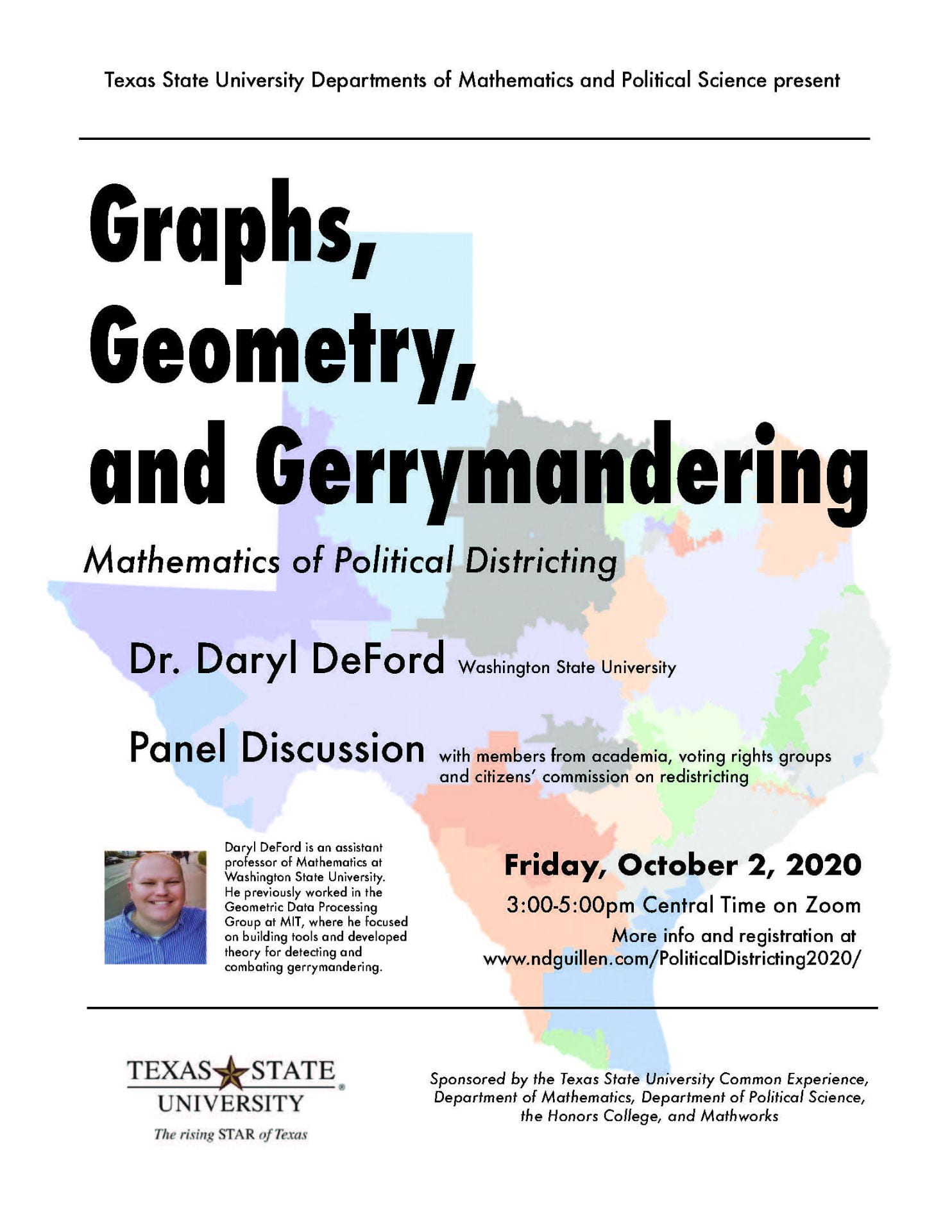
A conversation on political districting with a mathematical perspective
At the start of each decade the law mandates that the boundaries of congressional districts must be redrawn in order to reflect the most recent changes to the population distribution. This is a process of immense importance for the proper functioning of our democracy – the shape of congressional districts greatly influences who runs and who wins in congressional elections, and even influences who controls Congress or state legislatures, or city councils. This process is meant to guarantee the adequate and just representation of the voices of every citizen, but this ideal is not always met.
For more details, see the Event Page
Keynote speaker presentation by Dr. Daryl DeFord, Washington State University
Assistant Professor of Mathematics
- TJ Costello -Austin Independent Citizens’ Redistricting Commission,Vice-Chair
- Michael Faber -Texas State University,Assistant Professor of Political Science
- Joaquin Gonzalez – Texas Civil Rights Projects, Staff Attorney
- Stephanie Swanson – League of Women Voters of Texas, Issue Chair of Redistricting & Census
